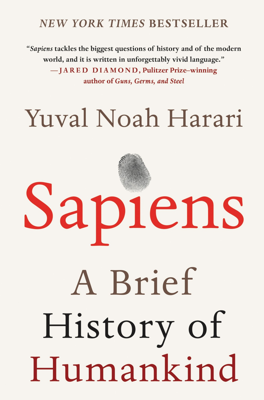The Secret of Success
The Inevitability and Variability of Global Society
The progression from numerous small cultures to a global society has distinct characteristics of human history, although not linear. The universal reach of commerce, empires, and universal religions has integrated virtually every human into a global society. The specifics of global society formation, such as the dominance of English and the prevalence of Christianity and Islam, could potentially vary if history were replayed, illustrating the randomness in the course of history.
The Hindsight Fallacy and History’s Path
This section addresses the "hindsight fallacy," the idea that historical outcomes seem inevitable after they occur, though they are far from obvious in real-time. Historical events, such as the preference for monotheism or the rise of significant empires, often appear as the result of choices made from many possibilities, each leading down different paths. The example of Emperor Constantine's choice of Christianity in the early Roman Empire illustrates that many alternative religious and cultural outcomes were possible. History is filled with seemingly small decisions and events that, in hindsight, appear crucial but were not predetermined or inevitable.
The Unpredictability of History
History is described as a "level two" chaotic system where predictions can influence the outcomes, making accurate forecasts impossible. This concept is exemplified through theoretical scenarios where forecasting the future influences the actions of people, thereby changing the predicted outcome. Consequently, while we can build models based on vast amounts of data, the nature of human society and decision-making introduces an unpredictable element that can dramatically alter the path of history.
Limitations of Deterministic Historical Interpretation
The rejection of deterministic histories acknowledges that our present world, governed by concepts like nationalism and capitalism, is not the inevitable result of historical processes. This perspective reinforces the idea that history is made up of myriad coincidences rather than predefined paths, highlighting the importance of understanding history to imagine alternative possibilities and to recognize the arbitrary nature of current hegemonies.
Cultural Evolution and Non-human-centric History
The narrative explores the concept that historical developments do not necessarily align with human welfare, contrasting with the belief that successful cultures or ideologies naturally benefit humanity. Different cultures and philosophies, such as nationalism or various religious ideologies, spread across societies not because they are inherently good for humans, but because they effectively replicate and survive, similar to organisms in biological evolution.
Perspective on Studying History
The discussion concludes that the study of history is crucial not for predicting the future but for expanding our understanding of how different the world could potentially be. This realization enables a critical examination of current realities and encourages imagining alternative social, political, and economic structures that could lead to different human experiences and outcomes.
